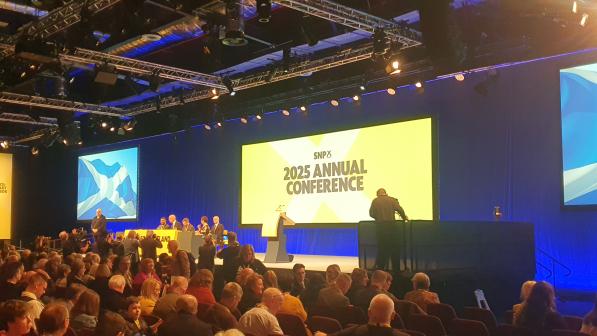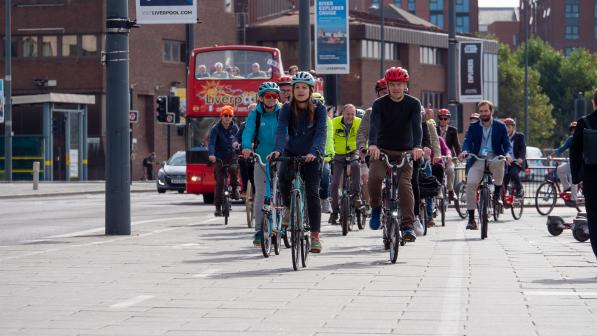Conservative Party Conference 2025: A bid for renewal in the face of irrelevance?

Manchester is a familiar, if occasionally uncomfortable, stomping ground for Tory Party conferences. The significant delays for those travelling in by rail made me dream wistfully for a shiny new high-speed rail link to the city – if only someone had planned to do that…
While in the past organisations have clamoured for a stand in the exhibition hall to catch the ear of some of the country’s most influential politicians, the hall felt noticeably roomy this time around.
Attendance was down sharply: 1,170 fewer members than the previous year, and even 194 fewer journalists, potentially giving credence to the Labour Party’s repeated suggestions that Conservatives are no longer the ‘real opposition’.
This was the first conference under Kemi Badenoch’s leadership, following her narrow victory in November 2024. Yet rather than a triumphant reset, whispers of leadership coups swirled, empty seats mocked the stage, and MPs were rarely to be seen beyond their allocated panels.
The exception was James Cleverley, who is rumoured to be vying for the party’s top spot if things really do go (any further) south for Badenoch. Although he’s certainly not the only member of the Shadow Cabinet with one eye on the Tory throne.

While she still has her spot at the helm, the party leader vowed to “bring the country back together” but a misspelled ‘Britain’ on Badenoch-themed chocolate bars went viral and suggested this ambition could be off to an awkward start.
Badenoch went on to pull no punches about trying to claw back the Conservative supporters who have drifted to Reform with words around immigration that seemed to mimic those in the Reform manifesto.
The party has been clear that it is focusing on long-term renewal, and their Policy Renewal Programme is beginning to bear fruit. However, we’ve not yet heard anything solid that relates to priorities Cycling UK believes will grow cycling and our economy.
While transport policy certainly didn’t dominate the agenda at the conference, there were still references to cycling and walking in key speeches. During his main stage speech, newly appointed Shadow Transport Secretary Richard Holden spoke of ensuring the importance of children being able to cycle freely and safely with their friends after school.

He underlined the right of travel choice – language that aligns with Cycling UK’s vision of giving people safe, realistic options for everyday journeys.
At the same time, conference discussions were mainly focused on motorists’ concerns, sometimes veering into the false, and unhelpful, dichotomy of setting motorists against other road users.
While cycling and walking were less prominent than in previous years, there were opportunities to reframe them as part of wider efforts to reduce congestion, improve local connectivity and support families’ transport needs.
Wednesday’s climax was Badenoch’s keynote, a 45-minute tour de force blending defiance and, potentially, denial. “We’ve listened, we’ve learned, we’ve changed.”
Post-conference polls showed a fleeting ‘Kemi bounce’, but Reform held firm, with Richard Tice accusing Tories of cribbing their manifesto. The party faithful hailed the speech as one of Badenoch’s finest, easing some of the unease surrounding her leadership. Whether this newfound momentum will endure remains to be seen.

Badenoch’s vision – pro-growth, anti-woke, unapologetically ‘British’, and thoroughly fiscally conservative – aims to stitch a fracturing party back together. The party is attempting to position itself as the only ‘sensible’ option, beyond gimmicks and unfunded spending promises.
This may turn out to be a profitable avenue for them, but with Scotland, Wales and local elections looming in 2026, the road ahead feels potholed, to say the least.
As the final delegates dispersed on Wednesday afternoon, the mood was resolute and surprisingly positive. The party’s current unpopularity meant that the conference leant towards those never-say-die party supporters – the members that refuse to jump ship and doggedly (or, maybe, delusionally) see a way out of this mess.
It was certainly too jubilant to be a wake, but the party’s prognosis remains uncertain.



